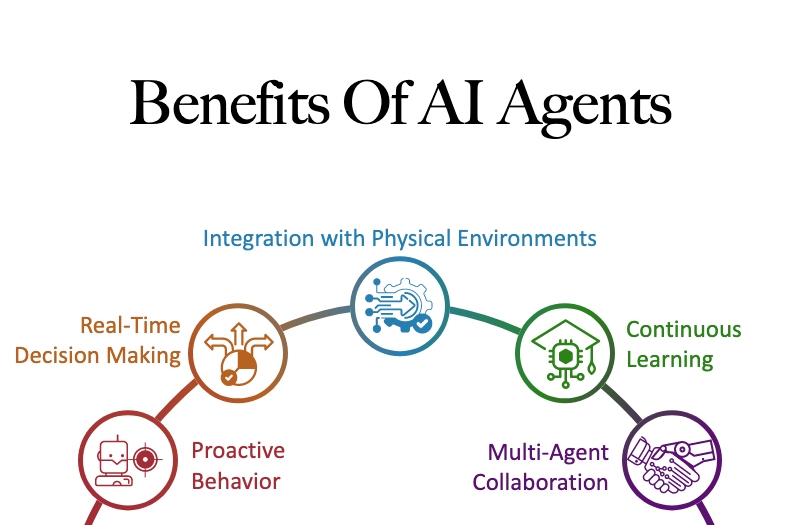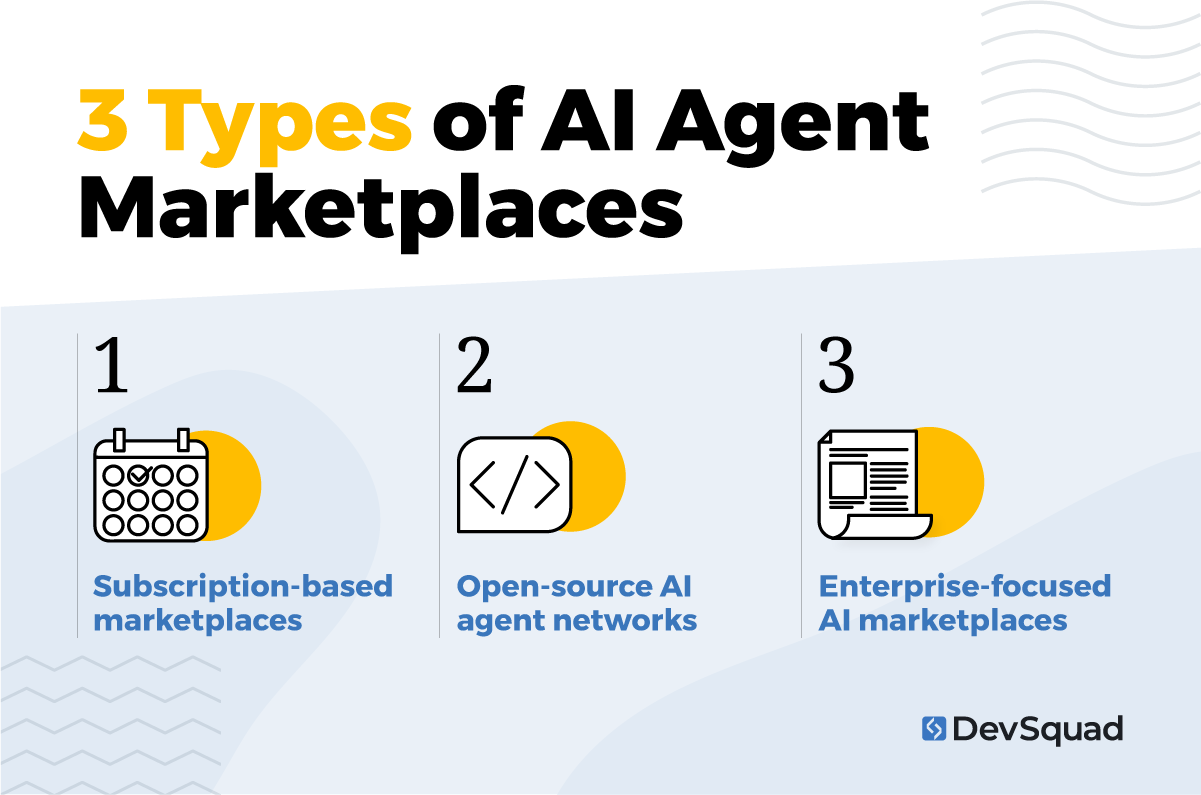The Comprehensive Guide to Recognizing the Uses of the AI Agents Marketplace
The AI agents marketplace stands for a considerable shift in how businesses can enhance their procedures. By offering an array of AI options, this marketplace addresses various organizational demands, from automating jobs to boosting decision-making. The assimilation of these agents is not without its challenges. Comprehending the ins and outs of this marketplace is essential for organizations intending to continue to be competitive. What elements should organizations consider before adopting AI agents?
What Are AI Agents and Their Key Attributes?
AI agents are innovative software program programs created to do tasks autonomously or semi-autonomously, leveraging man-made intelligence technologies. These agents make use of formulas and data to interact with their setting, choosing based upon predefined criteria or learned experiences. Key functions of AI agents include their capability to procedure huge quantities of data rapidly, assisting in real-time decision-making. They often incorporate device learning capacities, enabling them to adjust to new details and enhance their performance gradually.
Moreover, AI agents can operate in different domains, from customer care chatbots to intricate information evaluation tools. Their scalability allows them to manage multiple tasks at the same time, maximizing effectiveness. In addition, numerous AI agents have natural language processing capacities, which enhance human-agent communication. On the whole, the adaptability and knowledge of AI agents make them important possessions throughout industries, driving technology and improving functional performance.
Checking Out the Different Sorts Of AI Agents
The landscape of AI agents encompasses different classifications that highlight their distinct capabilities. Each type of AI agent serves distinct use situations and applications, ranging from client service automation to complex information evaluation. Recognizing these classifications is crucial for leveraging the complete potential of AI agents in diverse sectors.
Classification of AI Agents
While technology developments, the classification of AI agents has actually become progressively important to comprehend their varied performances and applications. AI agents can be categorized into numerous types based on particular standards. Reactive agents, for example, operate solely based upon the current situation, lacking any memory of previous experiences. In comparison, deliberative agents make use of interior models to prepare and make choices notified by previous communications. Another classification focuses about autonomy degrees, comparing semi-autonomous and completely independent agents. Additionally, agents can be categorized according to their purpose, such as individual assistants, customer care bots, or data evaluation devices. This organized category assists individuals and designers recognize the appropriate AI agents for their demands and assists in reliable release in different settings.
Usage Situations and Applications
Understanding the different categories of AI agents paves the method for exploring their useful applications and utilize instances throughout different markets. In health care, AI agents assist in medical diagnosis and individual management, maximizing treatment strategies and improving patient results. In finance, they enhance operations via automated trading, fraud detection, and personalized customer care. Retail organizations take advantage of AI agents for stock administration, sales forecasting, and improving customer experiences via chatbots. In production, AI agents maximize supply chains, screen equipment, and improve manufacturing effectiveness (AI Agents Marketplace). Additionally, in education, they facilitate personalized learning experiences, adjusting to private student needs. These varied applications illustrate the transformative potential of AI agents, emphasizing their value in driving technology and effectiveness across numerous markets
Applications of AI Agents in Different Industries

Advantages of Incorporating AI Agents Into Business Workflow
Incorporating AI agents right into organization procedures can greatly boost efficiency and efficiency, specifically when organizations accept their capacities to automate routine tasks and maximize workflows - AI Agents Marketplace. By leveraging AI, business can markedly reduce manual work, permitting staff members to concentrate on calculated efforts that check these guys out drive growth

In addition, AI agents help with boosted communication and collaboration among teams, simplifying processes and making check my blog sure that details flows effortlessly throughout departments. The scalability of AI options permits businesses to adapt quickly to transforming demands, making them a lot more resistant in an unforeseeable market. Ultimately, the integration of AI agents fosters advancement and improves general business efficiency, positioning companies for long-term success.
Difficulties and Considerations in Executing AI Agents
While the advantages of AI agents in boosting service operations are clear, several difficulties and considerations should be dealt with throughout implementation. Organizations often face technical hurdles, consisting of combination with existing systems and data compatibility. Furthermore, the top quality of information utilized to train these agents plays a crucial duty in their performance; inadequate information can cause suboptimal efficiency.
Furthermore, companies should navigate moral considerations, such as potential biases in AI decision-making and the ramifications of work displacement. Governing compliance is another substantial element, as companies need to comply with information security and personal privacy laws.
Ultimately, the requirement for ongoing maintenance and updates can stress resources, requiring a proficient workforce to manage and enhance AI agents properly. Attending to these obstacles is important for effective AI agent execution, ensuring that the innovation offers its intended function without unexpected issues.
The Future of AI Agents and Arising Trends
The future of AI agents guarantees a transformative influence on various markets, driven by quick advancements in innovation and advancing user requirements. As artificial intelligence algorithms become more sophisticated, AI agents are expected to show improved capabilities, consisting of boosted all-natural language processing and psychological knowledge. This development will facilitate extra intuitive interactions in between customers and AI systems, promoting higher count on and dependence on these tools.
Emerging fads show a shift towards hyper-personalization, where AI agents will certainly evaluate individual preferences to supply customized experiences. Furthermore, the integration of AI agents with Internet of Things (IoT) gadgets will develop smooth ecosystems that optimize day-to-day jobs and decision-making procedures.
In addition, moral considerations surrounding AI usage will certainly gain prominence, triggering developers to prioritize transparency and accountability. As these patterns unfold, the AI agents marketplace will likely expand, supplying varied applications across fields such as medical care, financing, and education, inevitably reshaping just how services operate and engage with consumers.
Regularly Asked Concerns
How Can I Choose the Right AI Agent for My Needs?
Picking the best AI representative needs assessing specific needs, examining features, and taking into consideration compatibility with existing systems. Researching individual testimonials and testing choices can additionally aid in making a notified choice that straightens with goals.
Exist Any Type Of Lawful Implications When Making Use Of AI Agents?
Using AI agents lugs potential legal effects, including concerns of liability, copyright, and information privacy. Customers must comprehend regulations and conformity demands to minimize threats associated with deploying these innovations successfully.
What Is the Price Array for AI Agents in the Marketplace?
The price array for AI agents in the marketplace differs considerably, normally extending from a few hundred to several thousand dollars, depending upon factors such as intricacy, functionality, and the certain demands of the customer.
Exactly how Do I Review the Efficiency of an AI Representative?
To examine the efficiency of an AI agent, one ought to think about precision, performance, flexibility, and customer fulfillment. Analyzing these factors through metrics and user responses the original source gives a detailed understanding of the agent's performance.
Can I Personalize AI Agents for Particular Tasks or Industries?
Tailoring AI agents for specific tasks or sectors is possible, allowing users to customize capabilities and actions. This versatility enhances effectiveness, guaranteeing that the AI aligns with unique functional needs and sector-specific needs.